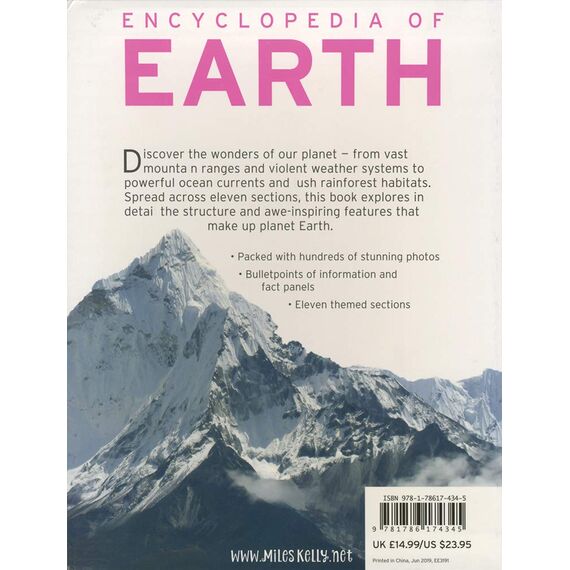Encyclopedia of Earth by Neil Morris is a comprehensive reference work that explores the planet’s physical characteristics, natural systems, ecosystems, and the complex interactions that sustain life. Designed for students, educators, and general readers with an interest in earth sciences, the book covers topics ranging from geology, meteorology, and oceanography to biodiversity, climate change, natural resources, and human impact on the environment. Each entry provides clear, detailed explanations of key concepts, making complex scientific information accessible while offering context that connects phenomena across spatial and temporal scales. Richly illustrated with diagrams, maps, and photographs, the encyclopedia helps readers visualize processes such as plate tectonics, weather patterns, water cycles, and ecological dynamics, enhancing comprehension and retention. The organization is both thematic and alphabetical, allowing users to explore specific topics or gain a broader understanding of the interrelated systems that govern the Earth. Beyond factual information, the book emphasizes environmental awareness, sustainability, and the importance of scientific literacy in addressing global challenges. Case studies and real-world examples highlight issues such as natural disasters, conservation efforts, and technological advances in environmental management, providing practical insights alongside theoretical knowledge. By integrating scientific rigor with accessible writing, Encyclopedia of Earth serves as a valuable educational tool, encouraging readers to think critically about human-environment interactions and to appreciate the complexity, diversity, and fragility of the natural world. Whether used as a reference for study, research, or personal learning, the book equips readers with the knowledge needed to understand Earth’s systems, their interconnections, and the role humans play in shaping the planet’s future.
No reviews found


